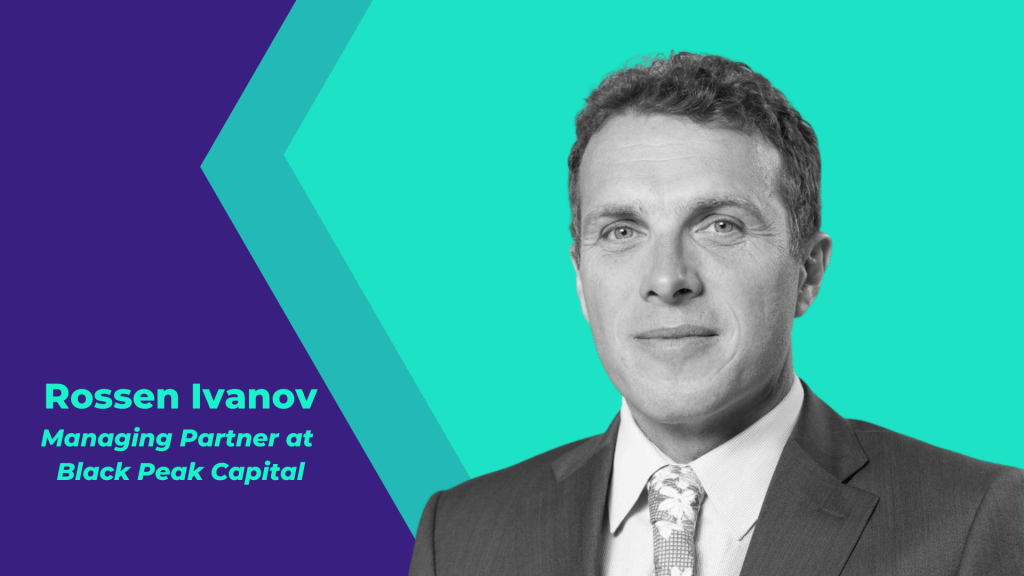The recent conflict in Ukraine following the Russian invasion brought geopolitics and its impact on economic stability to the daily agenda European business leaders and investors. Today, we are taking a bird’s eye view at the most likely economic effects and impact on the investment industry resulting from the conflict. The venture industry is an important component of the economy, which is why any geopolitical events leave a mark.
We investigated the topic by seeking insights from top investors in Central and Eastern Europe. Here are their key conclusions:
• Regional investors do not have major connections to Russia, whether through LPs or portfolio companies, and those who did in the past, have since relocated;
• The global investment industry, however, is slowing down – startups may expect to raise money at a slower pace vs. 2021;
• CEE economies send only a small percentage of exports to Russia; however, there is a potential negative impact on the energy imports from Russia, which will trigger accelerated investments in energy independence;
• The medium-term impact on the economy will be one of higher inflation and compression of consumer and business purchasing power; recession is not out of the cards;
• Ukraine and Russia have generous talent pools and tech companies line-ups; we may expect an influx of refugees from Ukraine and soon after economic and political immigrants from Russia, which will impact the regional labor market;
• Finally, the geopolitical importance of the EU and NATO is expected to increase, and with it investments in critical infrastructure and efforts to bring supply chains closer to home.
Meanwhile, VCs with teams in Ukraine have rushed to help employees and their families flee the country and find safe places to stay outside Ukraine, as well as gather humanitarian aid for those still in Ukraine.
Read more in the interviews with CEE investors from Early Games Ventures, VentureFriends, Black Peak Capital, Eleven Ventures, LAUNCHub Ventures, and Flashpoint.
CEE investors on the impact of the Russia-Ukraine conflict in Europe

The Recursive: What impact do you expect in Central and Eastern Europe in the mid to longer-term following the Russia-Ukraine conflict?
Cristian Munteanu: The venture industry is a component of the larger economy, and any geopolitical events that cause economic disturbances harm the venture capital industry as well. Fortunately, I could say that Russia has never been a major player in venture capital in Romania and maybe not even in CEE.
But Ukraine and Russia are large markets, with generous talent pools and quite an impressive lineup of good tech companies. Because of the war, I expect the markets to shrink, the talent to relocate and the good companies to struggle. Romania, Poland, and Hungary are probably best positioned to shelter the software developers and the companies that need a new home, but this is still to be proved.
Do you expect or experience any challenges in the local investment scene, and for Early Game Ventures in particular?
A pandemic followed by war and aggravated by inflation is an explosive combination. Rumor has it that a new great financial crisis is in the making.
The global investment industry already reacted to all these and the private markets proved quick to sync with the public markets in adjusting the valuations, number, and size of transactions.
Everything slowed down. It is not a freeze, not yet, but I can say that the good days are behind for those hoping to raise a lot of money fast.

The Recursive: What impact do you expect in Central and Eastern Europe in the mid to longer-term following the Russia-Ukraine conflict?
Apostolos Apostolakis: There is a short term impact that has to do with the uncertainty created due to the war and the potential that some people see for its expansion. I am not an expert in politics or macro so you can take my view with a pinch of salt but I believe the war should be over soon because it serves no one and therefore in the medium and long-term I don’t expect any significant impact.
The medium term impact on the economies will be one of higher inflation and some compression of consumer and business purchasing power but there is always a growing demand for technology products as they are offering cost saving and convenience.
The war is very unfortunate but we believe that the region will revert to peace.
We are long term believers in the power of people and nations to band together and isolate non democratic elements and we remain optimistic that a way for peace will be found again. We are also long term believers in the region and in the entrepreneurial capacity of founders who have the drive to build.
Do you experience or expect any challenges in the local investment scene, or for Venture Friends in particular?
Unfortunately, there are challenges in the local investment scene that will persist until the resolution of the uncertainty. Some investors who don’t have a long term view and commitment to the region are pulling off from agreed funding rounds. In our case we have 2 portfolio companies that have lost commitments from investors who had signed term sheets and had concluded due diligence. It is very unfortunate but it is what it is.

The Recursive: What impact do you expect in Central and Eastern Europe in the mid to longer-term following the Russia-Ukraine conflict?
Rossen Ivanov: I believe that overall there will be a positive impact, despite potentially divergent trends.
There will be multiple negative trends for CEE in the medium-term arising from the reduced overall investment sentiment, increase in commodity prices, continued inflation, and possible recession.
However, CEE’s geopolitical importance would increase for the EU and NATO, which will likely see increased investment in critical infrastructure and continued push to bring supply chains closer to home. In addition, even the more Russia-friendly states in CEE are likely to seek renewed integration.
The big unknown and a major policy focus is how the economic consequences will hit the more disadvantaged parts of the population and if this may lead to further populist backlash.
What challenges are you experiencing or expecting at Black Peak Capital?
We don’t have direct exposure to Russia and Ukraine in both of our funds. Most of our companies export globally or predominantly to Western Europe and US, and also have little direct dependence on gas prices.
However, we do expect multiple second order effects through reduced investor confidence, and also through overall inflationary pressure.

The Recursive: What impact do you expect in Central and Eastern Europe in the mid to longer-term following the Russia-Ukraine conflict?
Raya Yunakova: We can reasonably expect that the war in Ukraine and the economic isolation of Russia are going to impact our region economically. From the perspective of the startup ecosystem the effect will mostly be seen in the workforce. On one hand, some startups and tech companies employ remote staff or use outsourcing services in the two countries – the war threatens the wellbeing of those people and as a result the potential commercial relationships with them. In our portfolio for example, companies took early actions to ensure their employees in Ukraine are safe and if necessary evacuated to a different location, together with their families.
On the other hand, we are seeing an influx of refugees, primarily in Poland, with Romania and Bulgaria to a lesser extent. These people are likely to seek employment in their new homes and we are already seeing the tech sector supporting relevant professionals. One example is Noble Hire, a talent portal in Bulgaria, which runs a focused effort on finding employment for people running from the war here.
From a business perspective, the ICT sector in our countries is less affected as the share of export to Ukraine and Russia is negligible in comparison to that Western economies, at least considering the companies we work with actively.
Changes may be seen in certain organisations as they shift focus to supporting refugees in the crisis but, so far, those seem to be isolated cases. One example of that is the building of SoftUni in Sofia, which has started operating as a coordination center for refugees.
Do you experience or expect any challenges in the local investment scene, or for LAUNCHub Ventures in particular?
From a LAUNCHub Ventures business standpoint we are not yet seeing any impact, so for the time being it is business as usual for us. We do expect that the economic situation might deteriorate, so we are monitoring the environment in order to prepare and mitigate potential risks. Some of our peers, especially ones with exposure to Russian LPs, have expressed concerns over their ability to close deals (more specifically in attracting co-investors) or their own funding, but thankfully that hasn’t been the case for us so far.

The Recursive: What impact do you expect in Central and Eastern Europe in the mid to longer-term following the Russia-Ukraine conflict?
Ivaylo Simov: Actually CEE economies have very small exports to Russia (low single digit as a percentage of total), which is even more pronounced in the tech sector. So, apart from any potential impact on the energy imports from Russia, there will be little direct effect.
On the other hand, we might expect an influx of refugees from Ukraine and soon thereafter economic and political immigrants from Russia. This might be actually a welcome boost to the regional labor market, as the population in the region has been one of the fastest dwindling in the world over the last 10 years.
Perhaps more importantly, these refugees and immigrants will bring new contacts and networks that will remain active long after they return to their home lands.
All of the above obviously depends on how long the war and sanctions continue. Under a more pessimistic scenario, the conflict might escalate further and the riding will get rougher.
Regardless of the longevity of the war, the most obvious reaction in Europe will be accelerated investments in energy independence and ramping up its defenses, including also against cyber attacks and misinformation.
What challenges are you experiencing or expecting at Eleven Ventures?
Luckily, neither one of our portfolio companies have a presence or major customers in Russia or Ukraine. Apart from an occasional freelancer they also don’t have employees there. We also don’t have Russian investors in our funds, nor any Russian co-investors. Likely such investors will not be welcomed in Europe for a while.
Perhaps the biggest challenge is the negative effect the war has had on investors’ sentiment, resulting in an accelerated slump in the tech stocks, which will inevitably trickle down to VC valuations. Fundraising would likely become more challenging and having a healthy cash cushion would be important.

The Recursive: How are your portfolio companies in Russia handling the economic sanctioning of the country? What are your plans regarding your operations in Russia?
Alex Konoplyasty: We do not invest in Russia, we did have a couple of companies which focused entirely on Russia in the past, but we have not invested in companies with purely Russian focus since 2014. Flashpoint has moved its small Moscow based operations (4-5 people out of 30+) to Poland and Cyprus in order to maintain proximity between all teams that have been essential for Flashpoint’s success over the years.
What challenges are you experiencing or expecting? More generally, what impact do you expect in Central and Eastern Europe in the mid to longer-term following the Russia-Ukraine conflict?
The main challenge was to make sure that the relatives of our colleagues (we had a number of them in Kiev, Kharkov, Zaporozhye) and personnel of our portfolio companies were moved from the war zone. We have evacuated in total about 20 relatives.
Flashpoint has five or six portfolio companies that have employees in Ukraine. We have been helping employees of these companies and their families evacuate and find places to stay outside Ukraine with strong help from our local offices in Warsaw and Budapest. Since Flashpoint invests in software companies, employees of these startups are typically able to resume work remotely from their new locations.
Not all male employees could leave Ukraine following the introduction of the mandatory draft, so we need to provide them with moral support to keep them strong while they are separated from their families. Flashpoint employees have been actively involved in gathering humanitarian aid, providing donations to the people of Ukraine who are suffering.








